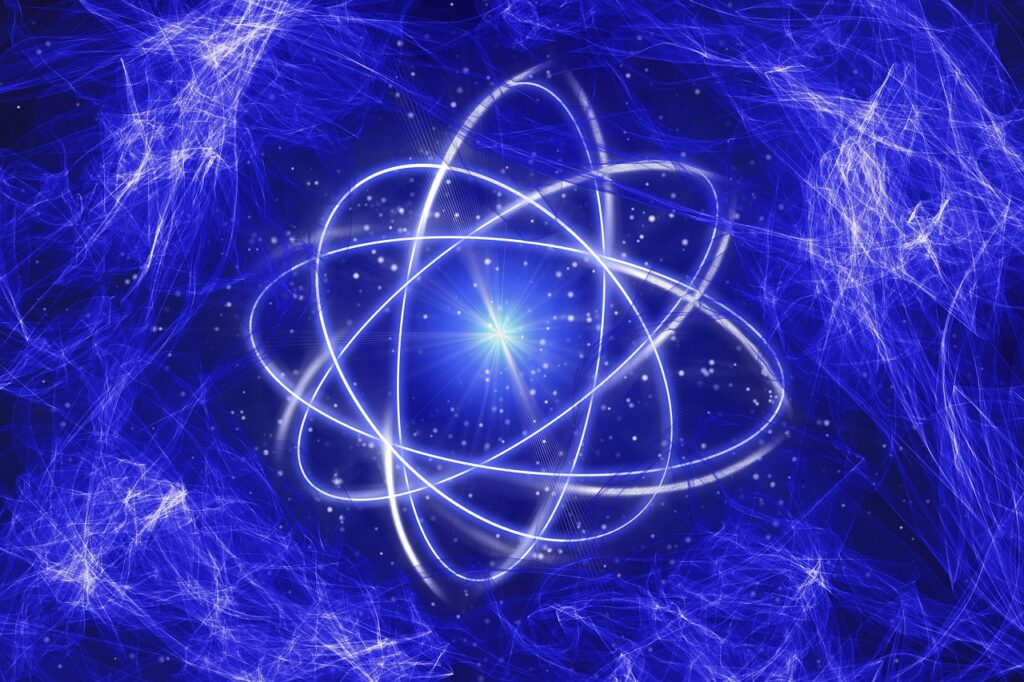CTCP Seminar “A 2D-CFT Factory: Critical Lattice Models from Competing Anyon Condensation in SymTO” by Prof. Yidun WAN | September 25, 2025, 4:30pm Room 522, 5/F, Chong Yuet Ming Physics Building

In this talk, we shall introduce a CFT factory – a novel algorithm of methodically generating 2D lattice models that would flow to conformal field theories (CFTs) in the infrared. We realise these models by engineering the boundary conditions of 3D topological orders (SymTOs) described by string-net models. The critical points are induced by a commensurate condensation of non-commuting anyons. Our structured method generates an infinite family of critical lattice models, including the A-series minimal models, and uncovers previously unknown critical points. Notably, we discover at least three novel CFTs (with central charge c around 1.3, 1.8, and 2.5) that preserves the Haagerup symmetries, in addition to recovering previously reported examples. The non-invertible symmetries preserved at these points are dictated by a novel “refined condensation tree”. The condensation trees predict large swathes of phase boundaries and sieves out second order phase transitions. This predictive power is illustrated not only in well-studied examples, such as the 8-vertex model associated with the A5 category, but also in new cases involving Haagerup symmetries, validated by an improved symmetry-preserving tensor-network renormalization group method. The critical couplings are precisely encoded in algebraic data (the Frobenius algebras and quantum dimensions of unitary fusion categories), thereby establishing a powerful and systematic route to the discovery and potential classification of new CFTs.
Joint Seminar: “Beyond Closed Wave Systems: Non-Hermiticity, Nonlinearity, and Casimir Effect” by Prof. Kun DING | Wednesday, August 20, 2025, 11:00am CYMP522

The classical wave system has demonstrated itself as an excellent platform to realize and
investigate novel phenomena and physics. The bedrock principle is to utilize the macroscopic
quantities obtained from the homogenization or mean-field treatment. However, it usually deals
with Hermitian problems and averages out fluctuations. Therefore, the presentation will cover two
topics: non-Hermitian physics and Casimir effect. The first part focuses on the impact of non
Hermitian ingredients on soliton formation and dynamics. By constructing a soliton phase diagram,
two distinct soliton phases and their transitions are identified. A Wannier-function-based nonlinear
Hamiltonian shows that soliton formation critically depends on how skin-mode localization and
band nonreciprocity suppress or enhance wave dispersion. Both soliton phases have been
demonstrated to be dynamically accessible from bulk and edge excitations. The second part
discusses the influence of the metal’s surface electrons on Casimir forces. A three-dimensional
frame transformation method has been established by embedding mesoscopic boundary conditions
of electromagnetic fields. We find that mesoscopic Casimir forces are sensitive to the surface
electron behavior, including spill-in and spill-out, as verified by the multiple scattering method and
proximity force approximation. The mechanism has finally been revealed as Casimir softening
distances rooted in quantum surface responses of electrons.
CTCP Seminar: “Testing Multipartite Nonlocality and Network Nonlocality Sharing” by Prof. Qing CHEN | Tuesday, June 17, 2025, 10:00am CYMP522

After a brief introduction to quantum nonlocality, we propose a set of conditions on the joint probabilities as a test of genuine multipartite nonlocality, and it turns out that all entangled symmetric multipartite qubit states pass this test. In the following we generalize this test to a family of Hardy-type tests, which can detect different degrees of nonlocality ranging from standard to genuine multipartite nonlocality. At last, we explore network nonlocality sharing in an n-branch generalized star network scenario with m observers in each branch and k settings per observer.
CTCP Seminar: “Authentication of Classical Channels in Quantum Key Distribution” by Prof. Liujun WANG | Monday, June 16, 2025, 3:00pm CYMP522

Quantum Key Distribution (QKD) offers information-theoretic security but relies critically on authenticated classical channels for post-processing steps (e.g., basis sifting and key reconciliation). Without authentication, these channels are vulnerable to man-in-the-middle attacks. Traditional methods require Alice and Bob to pre-share symmetric keys via physical meetings—a solution incompatible with multi-user QKD networks. We experimentally demonstrate a practical solution using post-quantum signature algorithms to authenticate QKD classical channels. This approach was validated under multiple QKD network topologies in laboratory environments and a real-world metropolitan QKD network operating continuously for 36 days. Our implementation provides quantum-resistant security while uniquely requiring only short-term security (e.g., ~1 second during authentication), contrasting with long-term security assumptions for post-quantum encryption. Additionally, we propose a quantum-teleportation-based protocol for message authentication that simultaneously ensures confidentiality—enabling secure key reconciliation in QKD.
CTCP Seminar: “Origin of Topological Holography” by Prof. Tian LAN | Friday, June 6, 2025, 4:30pm CYMP522

There is a holographic correspondence between (1) nD quantum systems with symmetry C and (2) nD boundaries of the n+1D topological order Z(C), where Z(C) is mathematically the Drinfeld center of C. Such mysterious topological holography has numerous applications and consequences, especially in the recent emerging field of generalized symmetry. By a rigorous construction and proof in 1+1D, we show that the Drinfeld center Z(C) naturally arise as the category of fixed-point local tensors with symmetry C, thus revealing the origin of topological holography. This talk is based on arXiv:2412.07198.
CTCP Seminar: “Deep Boundary Perturbations at a Quantum Critical Point” by Dr. Shang LIU | Wednesday, March 19, 2025, 3:30pm KKLG101

We explore an unconventional class of problems in the study of (quantum) critical
phenomena, termed “deep boundary criticality”. Traditionally, critical systems are analyzed with two types of perturbations: those uniformly distributed throughout the bulk, which can significantly alter the bulk criticality by triggering a nontrivial bulk renormalization group
flow, and those confined to a boundary or subdimensional defect, which affect only the boundary or defect condition. Here, we go beyond this paradigm by studying quantum critical systems with boundary perturbations that decay algebraically (following a power law) into the bulk. By continuously varying the decay exponent, such perturbations can
transition between having no effect on the bulk and strongly influencing bulk behavior. We investigate this regime using two prototypical models based on (1+1)D massless Dirac fermions. Through a combination of analytical and numerical approaches, we uncover exotic scaling laws in simple observables and observe qualitative changes in model behavior
as the decay exponent varies.
CTCP Seminar : “Quantum Spin Liquid as incompressible liquid of electrons” by Prof Yi ZHOU Monday, February 10, 2025, 5:00pm, LE8, Library Extension Building, HKU

An alternative to the “standard” quantum spin liquid model, which was constructed as a gauge theory, will be presented. This new framework is a Landau-type effective theory. We will explore both quasiparticle excitations and collective modes, along with their physical implications.
HKIQST Seminar “Nonequilibrium and nonlinear terahertz spectroscopy study on Higgs modes in conventional and unconventional superconductors” by Prof Nan-Lin WANG on Wednesday, January 15, 2025, 3:00 pm | CYPP3

We present recent progress in exploring the detection of superconducting collective modes in NbN, MgB2, and YBa2Cu3O6+x using innovative terahertz spectroscopy techniques. Transient Higgs oscillations and a higher-order nonlinear light-Higgs mode coupling effect were detected in NbN superconductors. In MgB2, the Higgs mode contribution from the dirty 3D pi-band and the Leggett mode contribution were identified. In YBCO samples, a beat pattern in the terahertz signal revealed a coupling effect between the Higgs mode and the mode developed below T*, indicating the pseudogap phase may be a distinct order, not a precursor to superconductivity. This strong coupling effect provides fresh insights into superconductivity and the pseudogap.
HKIQST Colloquium: “Quantum Simulation based on Atoms and Ions” by Prof. PU Han on Friday, November 29, 2024, 14:30 LG1 – CYCP1, Chong Yuet Ming Physics Building, HKU

Quantum simulation is one of the pillars of Quantum Revolution 2.0. Its essence is to simulate a complicated and hard-to-control quantum system using a simple and controllable one. Ultracold atoms and ions, due to their unprecedented controllability, have become an important platform for quantum simulation. In this talk, I will introduce two recent works in collaboration with my experimental colleagues at Rice. The first work concerns the simulation of electron transfer — an important issue relevant to many biochemical processes and material science — using trapped ions; and the second concerns the simulation of spin-charge separation — a unique phenomenon in one dimensional quantum many-body system — using two-component ultracold Fermi gas. These two works clearly demonstrated the advantages of performing quantum simulation using cold atoms and ions. I will also discuss some future directions based on these works.
CTCP Seminar : “Anomaly pattern of point groups and high-order topological states” by Prof Yang QI Wednesday, October 30, 2024, 4:00pm KKLG101, LG1/F, K.K. Leung Building, HKU

An essential feature of topological crystalline states (TCSs), which are short-range-entanged topological states protected by crystalline symmetries, is they generally have high-order gapless boundary states, such as one-dimensional hinge states and zero-dimensional corner states on a two-dimensional surface. Therefore, such TCSs are also called high-order topological states. In this work, we design a systematic method to compute possible high-order boundary states of a TCS for all possible surface geometries. We show that the location of surface gapless region, dubbed the anomaly pattern, can be symmetrically and continuously deformed without changing the topologically-protected gapless states, and such deformation defines a homotopy equivalence between anomaly patterns. The list of equivalent classes of anomaly patterns are completely determined by the point-group symmetry, and it is universal for all types of TCSs, including bosonic, free-fermion and interacting-fermion states. We also describe how to compute the anomaly pattern of a bulk topological state, for all types of TCSs.